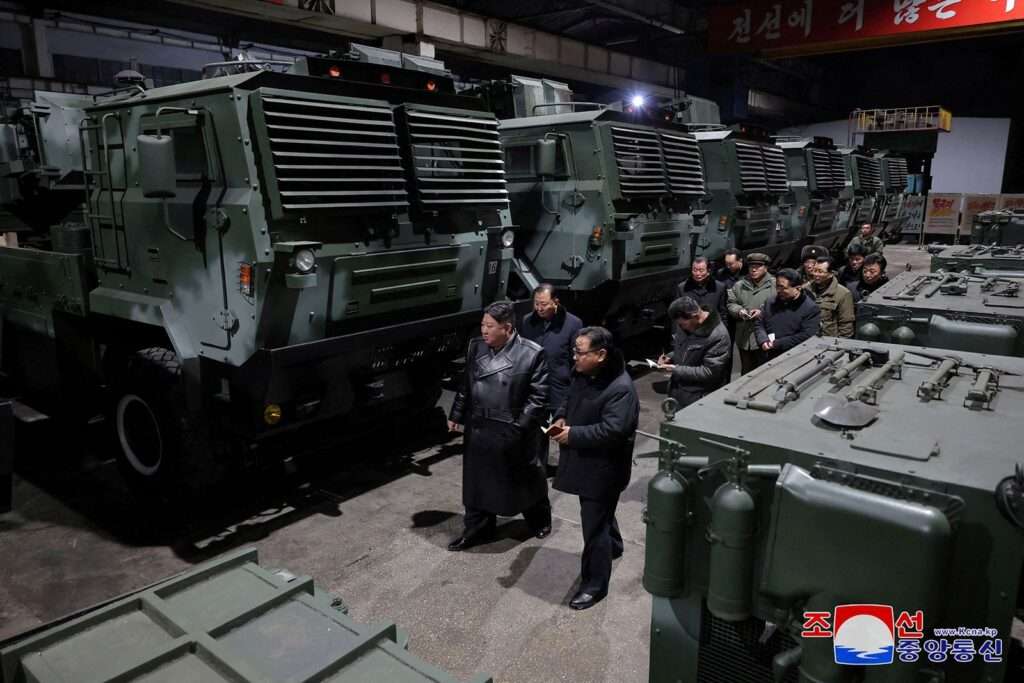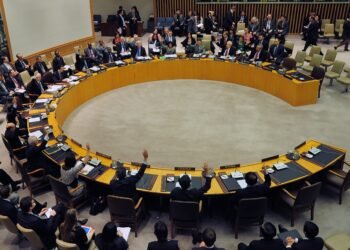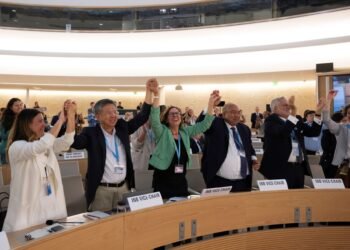The United Nations has raised alarm over rising tensions on the Korean Peninsula, urging the global community to prevent the Democratic People’s Republic of Korea (DPRK) also known as North Korea from advancing its nuclear weapons program.
Under-Secretary-General for Political and Peacebuilding Affairs, Rosemary DiCarlo, highlighted the critical need for diplomacy and de-escalation during her briefing to the UN Security Council.
“Diplomatic engagement remains the only pathway to sustainable peace and the complete and verifiable denuclearization of the Korean Peninsula,” Ms. DiCarlo emphasized.
Ms. DiCarlo detailed North Korea’s continued pursuit of advanced military capabilities under its five-year plan announced in 2021. The regime has focused on developing intercontinental ballistic missiles (ICBMs), intermediate-range ballistic missiles (IRBMs), and short-range ballistic missiles (SRBMs).
Reports also suggest the presence of a second uranium enrichment facility in Kangson, complementing the primary facility in Yongbyon. Furthermore, Pyongyang recently attempted to launch a military reconnaissance satellite and displayed weapon systems in violation of UN Security Council resolutions.
“Their open display demonstrates that the DPRK is far from slowing down its ballistic missile program,” Ms. DiCarlo warned.
Alleged North Korea-Russia Military Cooperation
Amid the ongoing conflict in Ukraine, Ms. DiCarlo expressed concern over alleged military cooperation between North Korea and Russia.
Unverified reports suggest that North Korea has transferred over 13,000 containers of ammunition, missiles, and artillery to Russia.

Additionally, media outlets claim North Korean troops have been trained and equipped in Russia and deployed to the Kursk region, fighting alongside Russian forces.
“While the United Nations is not in a position to verify these claims, they are a cause for concern,” Ms. DiCarlo said, reiterating Secretary-General António Guterres’ earlier warning.
The alleged deployment of thousands of DPRK troops in Ukraine could further escalate the conflict, Ms. DiCarlo noted. “We reiterate our call on all relevant actors to refrain from any steps that may lead to spillover and intensification of the war in Ukraine.”
Upholding Sanctions and Humanitarian Challenges
Ms. DiCarlo called on the global community to uphold sanctions against North Korea. In line with Security Council resolution 1718, North Korea must cease exporting arms and related materials, while member states are required to prohibit the procurement of such items.
She stressed the legally binding nature of these sanctions. She urged all countries to ensure compliance, stating, “Any relationship a country has with the DPRK must entirely abide by the relevant Security Council sanctions.”
Beyond security concerns, Ms. DiCarlo highlighted the dire humanitarian situation in North Korea. She urged the country’s authorities to facilitate the return of the UN Country Team to support its population and advance the 2030 Agenda for Sustainable Development.
The UN welcomed offers of unconditional dialogue with North Korea as a crucial step toward de-escalation. However, Ms. DiCarlo concluded that achieving peace on the peninsula requires commitment from all involved parties.
The international community faces the dual challenge of addressing North Korea’s nuclear ambitions while alleviating the humanitarian crisis faced by its people.
READ ALSO: ORAL: Unpacking John Mahama’s Anti-Corruption Agenda







